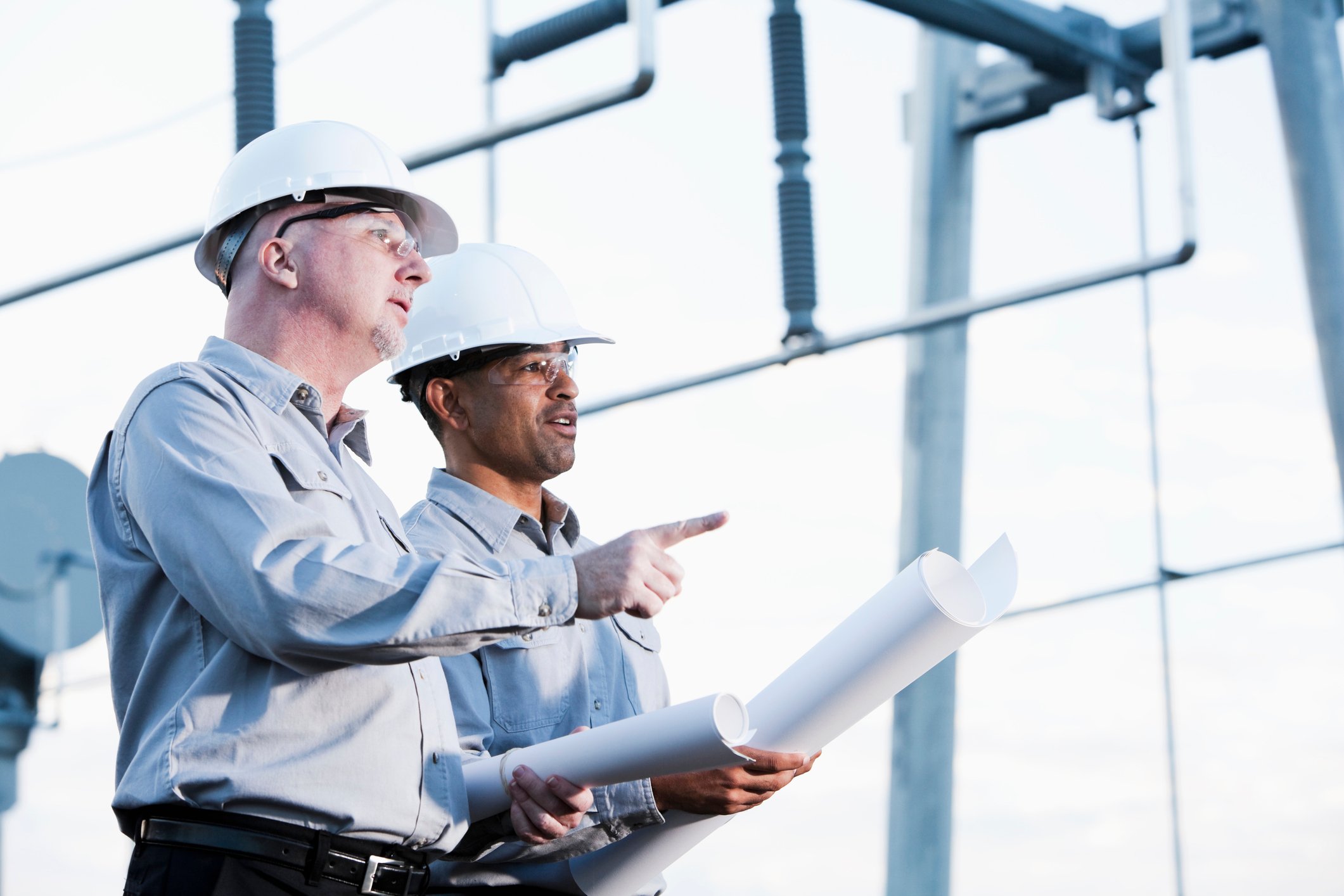A heating, ventilation, and air conditioning (HVAC) engineer designs, installs, and maintains heating, ventilation, and air conditioning engineering systems in buildings. These can include HVAC systems in offices, stores, factories, transportation facilities such as airports and train stations, schools, hospitals, and homes.
HVAC engineers design HVAC systems that meet the specific requirements of the building type. This includes calculating heat load and airflow requirements, selecting appropriate equipment and components, and designing ductwork and piping systems. They must select appropriate equipment such as boilers, chillers, air handlers, and other components for those particular HVAC systems. They do this by evaluating equipment specifications, performance, and efficiency, and making recommendations based on the needs and budget available.
HVAC engineers also oversee the installation of HVAC systems to ensure that they are installed according to design specifications, code requirements, and industry standards. They work with contractors, technicians, and other professionals to ensure that the installation is done correctly. After installation, HVAC engineers perform testing and commissioning to ensure that the system is operating correctly and efficiently. They perform functional tests, airflow tests, and other measurements to verify that the system is performing according to design specifications.
HVAC engineers are furthermore responsible for maintaining and troubleshooting HVAC systems. They perform regular maintenance to ensure that the system is operating efficiently and identify and troubleshoot issues that arise, such as equipment failures, refrigerant leaks, or airflow problems.
In designing and maintaining HVAC systems that are energy-efficient and cost-effective, they must be aware of energy-saving measures too. Such measures include upgrading equipment, optimizing system controls, or implementing renewable energy systems.
With the continued growth in building worldwide, HVAC engineers are always in demand. They are typically employed by engineering, construction and real estate companies, or other service-providing companies who offer HVAC solutions.
Apply now for a job as a HVAC engineer!
Projectleider HVAC
Location: Brussel
Branche: Infrastructure
Expertise: Quality Management
Experience: 3 years
Jouw verantwoordelijkheden Projectbeheer Je staat in voor de studie, calculatie en realisatie van HVAC- en sanitaire projecten Je denkt proactief mee en doet verbetervoorstellen voor technische oplossingen Je ondersteunt de tekenaar bij de ontwikkeling en uitvoering van plannen Je neemt deel aan klantenvergaderingen (nieuwe projecten en opvolging lopende projecten) Je bewaakt de planning, voortgang en kwaliteit van de projecten Aansturen van het team Organiseren en motiveren van de technische teams Voorzien van de nodige technische informatie en ondersteuning Opstellen en beheren van de personeelsplanning Inspelen op noodzakelijke aanpassingen of correcties aan installaties Zorgen voor een aangename en professionele werkomgeving Veiligheid & welzijn Uitvoeren van controles op de werkplaatsen Toezien op de naleving van veiligheidsregels (VCA, klantprocedures, …) Analyseren en evalueren van risico's op de werf Toezien op correcte veiligheidsprocedures en -uitrusting Informeren van medewerkers over veiligheidsinstructies en toezien op naleving Deelnemen aan werfinspecties en ongevallenanalyses Controleren van gereedschap en opvolgen van wettelijke keuringen (SECT) Commerciële & relationele taken Luisteren naar de noden van de klant en technische ondersteuning bieden Onderhouden van goede relaties met leveranciers en onderaannemers
Projectleider HVAC
Location: Gent
Branche: Infrastructure
Expertise: Quality Management
Experience: 3 years
Verantwoordelijk voor de volledige opvolging van HVAC-projecten, van studie tot uitvoering Werken op basis van studiebureaus en voorbereidende calculaties van de eigen dienst Zorgen voor correcte administratieve opvolging: planning, rapportage en budgetbeheer (vorderingsstaten) Technisch adviseren en oplossingen aanreiken bij complexe uitdagingen Fungeren als vak-expert en kansen/opportuniteiten signaleren binnen projecten Regelmatig aanwezig zijn op de werf en actief deelnemen aan werfvergaderingen Samenwerken met werfleiders om het overzicht en de voortgang van het project te bewaken Dicht bij de betrokken partijen staan (architecten, bouwheren, e.a.) en hen informeren over het verloop van de werken
Tekenaar HVAC
Branche: Infrastructure
Expertise: Production & Manufacturing
Experience: 2 years
Uitwerken en implementeren van technieken in Revit BIM-modellen Tekenwerk voor ventilatie, koeling, sanitair, piping/tracés Opstellen en uitwerken van technische fiches en maintenance-tekeningen Werken met een beperkte databank van bestaande modellen Ondersteuning van projectleiders en administratieve teams
Techniker Planung und Projektierung HVAC/HKL (w/m/d)
Location: Neubrandenburg
Branche: Machine & Plant Design
Expertise: Research & Development
Experience: 2 years
In Ihrer Position dreht sich alles rund um die Planung und Projektierung von Lüftungstechnik. Dabei berechnen Sie den Luftbedarf sowie deren Konditionierung. Zudem erstellen Sie Konstruktionen mittels RUKON. Unter Einhaltung sicherheitsrelevanter Vorgaben planen Sie Entrauchungsanlagen. Sie prüfen Unterlagen der Leistungsphasen 3 und 5 auf technische Mängel und Plausibilität. Je nach Erfahrungsstand übernehmen Sie die fachliche sowie disziplinarische Führung. Ihr Kommunikationsgeschick nutzen Sie für die erfolgreiche Zusammenarbeit mit Bauherren, Fachplanern und Architekten.
Werfleider HVAC& Sanitair Industrieel
Location: Izegem
Branche: Infrastructure
Expertise: Quality Management
Experience: 3 years
Als werfleider HVAC & Sanitair (Industrieel) ben je verantwoordelijk voor de dagelijkse goede werking van de werf. Je zorgt voor een efficiënte en praktische organisatie, zodat de werken vlot en zonder vertraging kunnen verlopen. Communicatie vormt een belangrijk onderdeel van je functie. Je staat in nauw contact met de projectleider en stuurt de ploegen op de werf aan. Daarnaast zorg je ervoor dat de nodige materialen en machines tijdig worden aangevraagd, zodat de werkzaamheden zonder onderbreking kunnen doorgaan. Als werfleider waak je over een positieve ploegsfeer en streef je steeds naar een kwalitatieve en verzorgde afwerking
Common HVAC engineer responsibilities
An HVAC engineer is responsible for performing a range of tasks. Responsibilities may include:
- Conducting research on new technologies to develop efficient HVAC designs;
- Providing technical support to other engineers on projects or issues related to HVAC;
- Calculating, designing, constructing, and maintaining heating, ventilation, and air conditioning for residential, public, and commercial buildings;
- Analyzing building plans to determine the HVAC unit number for each building type and room or floor of the building;
- Evaluating customer needs and recommending solutions in line with them;
- Determining the best place for installing HVAC equipment in a building;
- Coordinating with contractors to ensure new installations meet building codes and regulations on time;
- Working with contractors to ensure existing HVAC systems are working properly;
- Inspecting chillers, boilers, air handling units, and refrigeration equipment;
- Traveling to sites to design, install, maintain HVAC systems;
Ensuring the safety of everyone at all times.
Qualifications for HVAC engineers
HVAC engineers should possess at least a Bachelor's degree in HVAC Engineering, Mechanical Engineering, or a related field. In some countries, a professional certification may be required.
Additional supporting skills and experience include:
- Some prior experience with heating, ventilation, and air conditioning, building design, or mechanical-electrical systems, including from an internship or apprenticeship is recommended;
- Strong understanding of buildings and construction;
- Ability to use diverse tools and machines;
- Strong team collaboration and customer service skills;
- Logical thinking skills and attention to detail.



